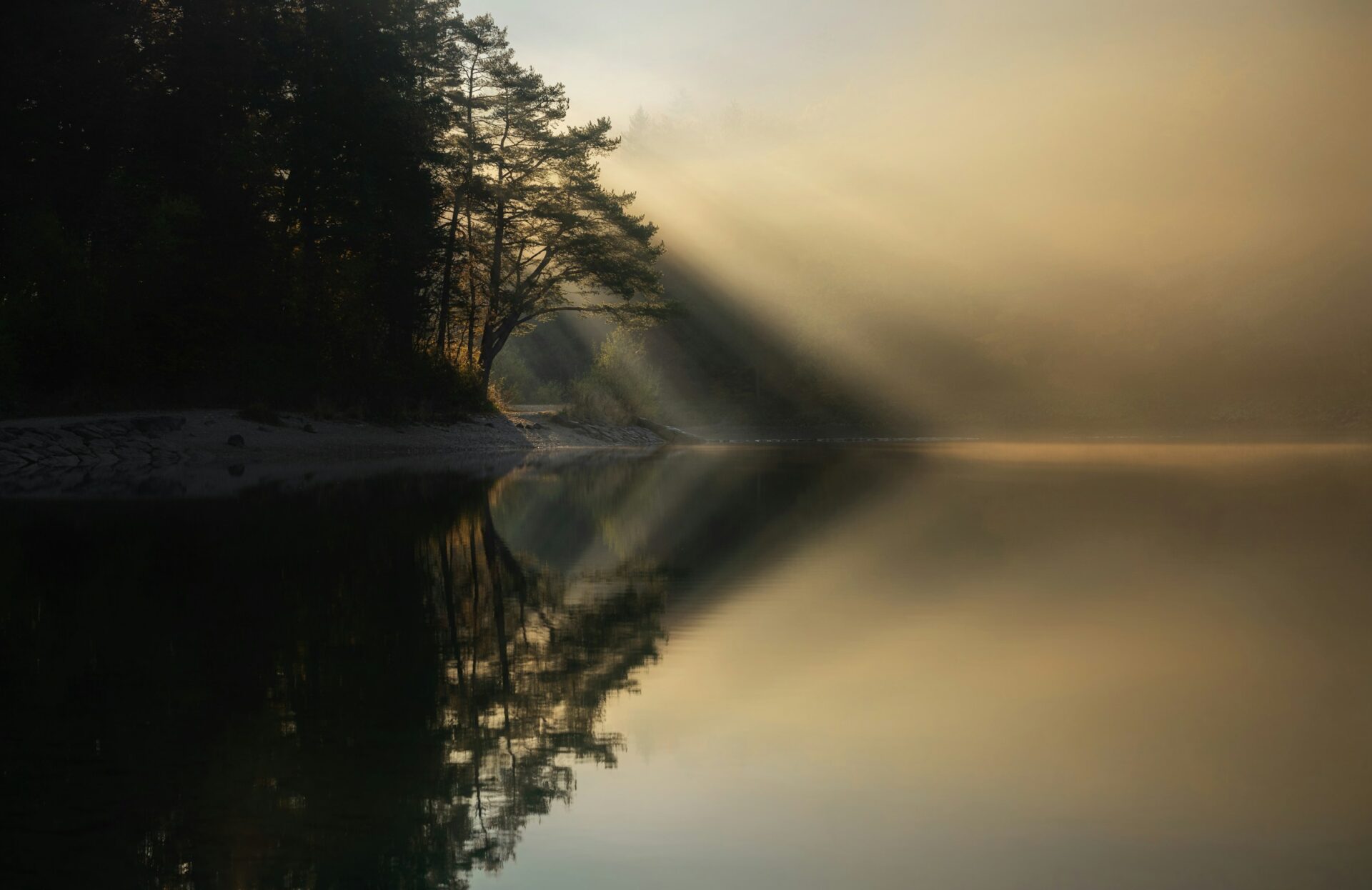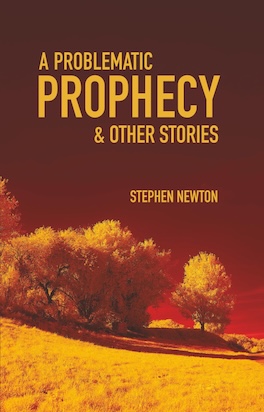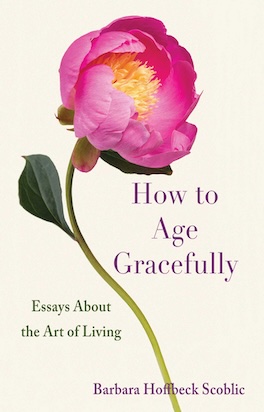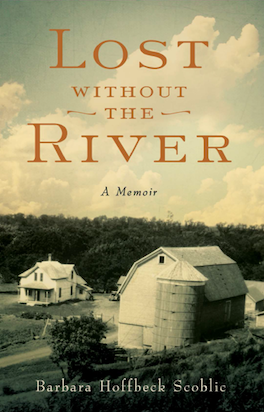Freedom
Dawn’s soft sun seeps through left and right forests that defer in a letter V bow to light. I rise in shadows for a gratitude prayer that precedes the aurora’s arrival, spiritual ballast for passage through a meditation that precedes the challenges this day. Silence spawns memories, reflections, questions.
Rodney and the “Ring Lady” rise in mind, he whose shunned though storm-drenched self and sign on Manhattan’s Sixth Avenue cried, “I AM HUNGRY,” which I addressed and the stylish CHIPS Soup Kitchen guest in Brooklyn who talked politics once I’d done the day’s work dishwashing, greeting, serving, sweeping. “Got to love that salad! Taste those tantalizing greens!” I’d coach hefty male meat eaters. “Keep on being a free person!” they’d urge.
Can I rise to the level our fraught present demands?
“One easily overestimates the importance of one’s own acts and deeds, compared with what we become only through other people,” Dietrich Bonhoeffer, German pastor, theologian and ecumenist, wrote to his parents from prison on September 13, 1943, soon tried for his part in a plot against Hitler.
Agency lay for me in midlife as I bore witness in the Katal Center for Equity, Health and Justice’s Shut Rikers Campaign, post-Katrina flood rebuilding in the Lower Ninth Ward of New Orleans, mobilized post-hate crime Crown Heights (Brooklyn) and Howard Beach (Queens) coalitions, and took part in a post-Peace Corps truth-seeking team in Sandinista Nicaragua amidst Reagan’s Contra War against it.
In retirement’s two-year old Brooklyn (NY) to Berkshires (MA) transition, I’m cutting and knotting ties, leaving one synagogue after thirty-nine years while sampling courses on poets and prophets elsewhere. Election post-carding, legislative lobbying and prison visits narrow. Stamina shrinks. Crises grow.
Heart’s anguish spills on screen as words of spinning mind.
Apathy confounds me. “We’ll get through this,” those of privileged lives assure although those who won’t live near. The local press affirms ICE actions in the towns.
I model my values, meanwhile. “Please feel free to continue. I am patient and have no need to hurry” I reply as a deli customer offers to pause her large order for my convenience. I listen as she then cites her list’s stuffed grape leaves, roasted tofu, spinach pies, baba ghanoush and humus. “It’s a pleasure to exchange courtesies with you,” I confide at her breath pause, “here where some folks act as if entitled to demand what they want.” She shares her recipe for the spanakopita I seek.
Kindness dilutes ugliness but needs large and frequent venues with political effects.
I resume twice-weekly drawing hours with the half-full sketchbook of interior scenes at a French café where a large black coffee arouses a muse as I spread my beloved’s tablet gift with colored pencils in a rainbow array on a chocolate brown circle table and then set to work. A Moveable Feast’s Hemingway image of requesting a café au lait before writing “just one true sentence, the truest sentence I can” becomes my companion, forty-seven years since I read it at a U.S. Army base library one Sunday in Daegu, South Korea, where I trained special education teachers at a college in the Peace Corps.
Spontaneity is the key to being free, since we don’t then second-guess or censor.
My initial line in ink, ensuring focus, seeds uncertainty in mind: will this page have beauty? I learn to trust the process. Should an unsure hand direct an errant line, “I am an impressionist not photographer,” an inner voice assures. Picasso’s Dove arrives in mind.
Crossing Kissinger
“He’s harmless, let go!” they shout, aiming cellphones at my alleged aggression toward a centenarian whose age and gait obscure the devious schemes for which he was unjustly awarded. My left hand keeps the crowd at bay as my right clutches the curmudgeon’s starched and striped Brooks Brothers dress shirt by its collar.
A citizen’s arrest of Henry Kissinger had been my dream for decades, and despite his death two years ago, it surfaces one restive night as my Walkman buds fill ears with troubling BBC World Service segments from Gaza, Ukraine and South Sudan.
Silence shows the imaginary crowd is unaware of the gaffer’s 1973 subversion of Chile’s democracy by orchestrating the coup that kills elected President Salvador Allende and installs General Augusto Pinochet’s brutal rule.
I then realize while recalling that the former U.S. Secretary of State managed the secret and illegal Vietnam-era bombing and invasion of politically neutral Cambodia that having Kissinger in custody means that I am obliged to feed him.
As he’d never been held accountable for his actions, I don’t feel hospitable.
“Turkey on rye?” I hiss at last, tempted by a deli window’s poster images of tuna wraps, paninis and pizza, grateful that the dream’s expansive nature means we may have what we want delivered. Including black coffee and light beer delights me!
The crowd, put off by my history lesson, melts like grilled cheese, leaving me to plot my next moves. The mists of memory shade the protocols of a citizen’s arrest beyond what an encyclopedia had revealed to me in my twenties. What to do?
No one else is around to discuss it so I ask Kissinger, the seasoned politico, who demurs. “Do something to end this,” my nemesis cries. “Didn’t you have a plan?” he demands in the familiar authoritative voice from television when he lied that peace was at hand in Vietnam in October 1972 to undercut Senator George McGovern’s Presidential candidacy.
“You had a staff to brief you on the issues, big shot,” I retort, “while I’m on my own—and you didn’t deserve that 1973 Nobel Peace Prize!”
With a circus performer’s dexterity while losing control of the scene, I with one hand fetch my iPhone 16 from its blue jeans hip pocket to Google search “Citizen’s Arrest.” Mere police lists of local felonies and misdemeanors appear.
When aware hours later that our lunch isn’t coming, we sit on the grimy street corner curb and agree that we’ll call it a draw.
First shafts of sunlight then bleed the dream into dawn, returning me to ponder in real time whether we will ever achieve our nation’s peace and justice ideals.
Prophets and Outlaws
The International Criminal Court in Geneva cannot enforce arrest warrants for Prime Minister Netanyahu, the architect of genocide in Gaza, and former Defense Minister Gallant, who ordered the siege that denied food, electricity, water and fuel “with everything closed because we are fighting people who are like human animals and will be treated accordingly.” The ICC relies on 124 member states to enforce judges’ orders. The guilty are thus out of reach inside Israel.
Our tainted “Land of the free and Home of the brave” meanwhile levies sanctions against the four ICC judges for, in Secretary of State Rubio’s words, “illegitimate actions that target the U.S. and Israel.”
“The intensification of U.S. reprisals against international institutions must stop,” UN High Commissioner for Human Rights Volker Turk of Austria asserts. “Other States need to step up to protect the Court and safeguard its officials. Sanctions on them are an assault on the rule of law and corrode justice.”
Appalling silence ensues. Nuremberg precedents mean nothing to the U.S. and Israel, rogue states.
To tar domestic dissent from the “Israel Right or Wrong” ethos as antisemitic betrays Judaic traditions of argument and dialogue while repairing the world. Its blockade of debate destroys hopes of a ceasefire preceding war’s end to ensure its survivors’ salvation.
“Free People” of any or no faith at all function thusly. Jeremiah, Ezekiel and Isaiah among ancient Hebrew Prophets who sought social justice in their time cock ears for conscience calls in our time.
“What you do matters,” the U.S. Holocaust Museum’s gift shop patch on my jeans jacket proclaims. When did “Never Again” lose its meaning? Who will answer, who will act, I assume the pale and silver moon inquires as I step outside this morning.
Whither Conscience?
Riders avert eyes on city subways from alms seekers, bench sleepers. Hand-held signs plead for largesse at traffic circles in the towns. Red-lighted drivers’ stare. Tightened pincers of our policies dare the desperate to erupt against this government’s abusive and selective “law and order” farce. President Trump’s threats to militarize Baltimore, Memphis and Chicago as he did Washington, D.C., invite dangerous reactions.
“There is a heady sense of manhood that comes from advancing from apathy to courage, from passivity to aggressiveness. There is an intoxication that comes from standing up to the police at last,” Vietnam War resister David Dellinger wrote in From Yale to Jail: The Life Story of a Moral Dissenter, but fighting fire with fire leaves ruined neighborhoods and dead messiahs.
The John Lewis legacy of assertive nonviolence should be our beacon light, but the prominent, whose eulogies pledged ongoing “Good Trouble,” now pursue their own ends. Former Presidents Obama, Bush and Clinton as an Elders Council in the British tradition of a “Loyal Opposition,” could issue a clear and concrete bipartisan governance plan restorative of democracy to counter the Heritage Foundation’s despotic Project 2025 Trump playbook.
A publicly promoted plan for common good could rally voters aligned with or apart from both parties. It would restore integrity to the presidency, reducing commodification made manifest in Barack Obama’s thirty-five-dollar tee shirts, George W. Bush’s costly coffee table books of watercolor portraits, and Bill Clinton’s lecture fees and book sales.
Nelson Mandela in 2007 convened a still active Elders model that Juan Manuel Santos, Colombia’s former President and a Nobel Laureate, chairs. Former Ireland President Mary Robinson and former New Zealand Prime Minister Helen Clark’s recent trip to Egypt’s Rafah border crossing enabled them to witness how Israel’s blocks humanitarian aid trucks from Gaza, The Elders “urge Europe and the United States to take decisive action,” a newsletter reports.
“The humanitarian disaster in Gaza is worsening by the day. Innocent Palestinians are on the verge of starvation, injured children are having their limbs amputated without anesthesia, sewage is spilling onto the streets, and health officials are warning of the imminent outbreak of cholera and other diseases. Over one million displaced people have been crammed, without adequate shelter, into the southernmost city of Rafah—on top of the 280,000 Gazans already living there. Hundreds of thousands of others are trapped in northern Gaza, cut off from essential lifelines. This catastrophic situation is entirely man-made, and it must end.”
Senators Chris Van Hollen and Jeff Merkley’s formal report and press conference publicized that finding from their January 2025 trip to Egypt, Jordan and the Rafah crossing where they “met with dozens of individuals and organizations who have decades of experience providing humanitarian relief in conflict zones around the world—from Syria to Yemen to Ukraine to Sudan to Burma. They told us they have never witnessed a humanitarian disaster of the scale and severity we see in Gaza today.” (Van Hollen, Merkley Press for action following trip to Rafah Crossing, Egypt, Jordan; Statement, January 10, 2024).
Twenty months later famine is real. Israel targets Hamas ceasefire negotiators in neutral Qatar. “We’ll annihilate Palestine and annex the West Bank,” Netanyahu declares. Recalling how the world in 1938 conceded Czechoslovakia’s Sudetenland to Hitler, igniting World War II, alarms me. 90% of Gaza homes as well as hospitals and schools are rubble. There is nothing to eat and nowhere to go for survivors among 65,000 dead. France, the United Kingdom and Belgium will recognize a Palestinian State when the UN General Assembly convenes, they too late declare.
As we become what we deplore, we reap what we fear. The cause-and-effect bond of genocide and antisemitism seems to me crystal clear.
Water and Ice
Alternating hands cup and like a steam shovel dig and pull water alongside my slim form. Legs flutter kick water as did actor Lloyd Bridges, a crime-fighting diver who looked and sounded like Dad in Sea Hunt,” a childhood TV show I liked. My body flows fast, crisscrossing the pool. I’m in control of swim segments for a ten-minute stretch. It’s a lasting balm for the quandary of how to meet a defiant world’s distress.
An ice rink replaces pool water in winter when potential actions for our problems still populate the mind. Sharpened steel blades’ forty-five-degree rhythmic scraping strides soothe spirits. Whiskers bend in breeze. Watchful eyes thread wary paths among dance, music focused teen skaters to whom I’m invisible. Dodging collisions, I pretend I’m an offensive star among hockey defenders.
The New York Rangers’ Phil Goyette taught me at age twelve to skate backwards and position myself in a scrimmage as a naïve wannabe at a summer training camp for college and NHL prospects at Worcester Polytechnic Institute. Pro games I saw from the old Madison Square Garden’s $1.50 side balcony in the ‘60s enthralled me; I’d begged my parents to send me.
We drilled on ice through four-hour days, then at night after dinner got autographs of pro stars who showed films of their highlights. “Walk with me to the car and I’ll sign a picture,” the Stanley Cup champion Montreal Canadiens goalie Charlie Hodge whispered to my roommate and me.
It was lights out when I tried to body check the first man who came at me on ice. With helmet and pads I felt nothing though we must have collided. Gargantuan men above and around feared I’d sustained broken limbs. I lay gazing up at the retired jerseys of all-stars. The game was beyond my control.
Nor am I now “in control” of a discordant and disarrayed world, but it felt good to swim and treadmill this morning before sharing life’s lessons over coffee with a friend in his seventies as am I.
Guided by faith, truth and moral integrity, values a Torah study partner and I define as priorities, I live as a “free person” within a constricted though meaningful realm.
Hallowed Halls
Do my gestures with the distressed or destitute flow from an open heart with love? Am I steadfast with my values among the self-concerned? Will I have done enough for others when my life’s last day arrives? The late Senator Robert F. Kennedy’s 1966 avowal to young South African activists against apartheid that collective ripples grow more forceful than oppression means less in our time.
When young, I strolled the Capitol’s hallowed halls with a college classmate from Washington University in St. Louis invited to discuss President Nixon’s 1972 escalation of Vietnam bombings at Christmas. “Block his Executive Branch confirmations and budgets to halt business as usual,” we urged. California Representative Pete McCloskey had called for Nixon’s impeachment but told us we could do nothing till midterm elections, then two years away. People are dying right now, we countered.
We learned the legislative process and papered dorm walls with Senate and House foreign relations committee members’ missives. My thesis on the John Kennedy and George McGovern campaigns got me hired as a legislative aide to Missouri Senator Stuart Symington assessing energy and environment bills to recommend how he should vote. He received high volume visits and mail that was partly my job to absorb. What thrilled me irked some.
Elected members rely now on advanced office technology that keeps the public at bay with complex phone recordings and “Email Me” boxes that earn form letter answers, if any. An evidence-based argument becomes stale milk as staff members count clicks from the “instant action tools” that flood Congress with prefab emails.
“Enhanced security procedures will significantly delay receipt of your postal mail,” those who work for us announce.
Contemplation
Dawn’s rays creep across eaves that peek through robust evergreens that line the foreground’s highway. Triangular twin roofs as if siblings aim skyward at heaven. I fancy as I peer through glass at the distant house that it was once Thomas Merton’s hermitage, the prolific author, artist and Trappist monk’s spare dwelling set apart from society on a Kentucky monastery’s pastoral ground.
Hermit life in later years brought Merton (1915-1968) to the mystical sense of an ineffable God, shaping the famed monk’s books on nuclear weapons, the Cold War and racism, despite his superior’s censorship schemes.
I own more past than future yet wrestle as he did with power, greed and war. When my tawny boots climb narrow paths to hilltop clearings for prayer’s respite from vexing thoughts of human immoralities, I imagine Merton in contemplation alone above the Abbey’s communal study sites.
“The greatest need of our time is to clean out the enormous mess of mental and emotional rubbish that clutters our minds” in his Conjectures of a Guilty Bystander resonates as seamless television commercials induce us to want what we don’t need. Vapid game shows distract minds, reality shows insult intelligence, trivializing life.
Everyone’s a huckster. Trump’s Truth Social provokes idle gossip that diverts deep thought, crisp action. Merton’s prophetic letters on political social concerns in The Hidden Ground of Love are worthy alternatives. His inquiries into Buddhist, Taoist and Sufi philosophies imply that framing what is right, not who is right, might save us.
I couldn’t discern the “still small voice of God” when I launched my prayer practice. Unaware of the Divine Presence within, I sought a foghorn to compel broad moral action. Rabbi Abraham Joshua Heschel’s Hebrew Prophets tome taught that they sensed, not heard, God’s word—as when I, despairing, pursued a pine forest trail for a spiritual experience I thought I would know if it happened (when a rustling sound rewarded my eyes with a majestic deer’s fleeting presence), or when an early morning’s pale silver moon on high asks “how I will be a helper” as I skip outside from home.
I peer through glass doors seeking stars before bed. When they emerge from the dark, I’m in awe at the scale of the universe with the NASA’s 2021 Perseverance Rover research satellite traveling seven months to Mars, planets mere particles in the Milky Way Galaxy, but one of “thousands of galaxies stretching back into time across billions of light-years of space,” NASA’s Hubble Space Telescope found (Hubble Reveals Observable Universe Contains 10 Times More Galaxies than Previously Thought,” NASA Hubble Mission Team, Goddard Space Flight Center, October 13, 2016, science.nasa.gov).
Images of God as an enthroned king disturb as misogynist thought. I believe we each have a Divine Spark within that kindles the best parts of ourselves, of which we may not be aware, or our hasty or reactive behaviors may override. Hence, the still small voice seems real.
Push On
Preserve pleasures over sackcloth, ashes, hands wrung with dismay as the world disturbs us. Savor roasted tofu’s textured taste between a baguette’s halves, the artful ice-scrapes of rink skates’ silver blades stimulating senses or populating authors’ pages with one’s own scribbled notes and circled lines from prose or poems.
Stay abreast of trusted sources’ news (I survey NPR, the Guardian, Reuters and the BBC World Service; you?).
Make ripples on one issue over time. Spread word of that through friends. Convene a group for phone calls, postcards, letters that discussion, research and debate inform.
Draw pride from the process. Don’t bend the knee to a bully. Do challenge with measured words that with moral force turn tables. Poise saves access to one’s conscience, vision, skill. During each day help someone, somewhere, somehow. Crack a smile. Keep on.
Inner Work Breeds Outward Role
The arrogance of ignorance prods fearful public men to augment arsenals that wreaking havoc if unleashed would leave earth barren, bereft of lackeys lauding chicken hawks whom war’s chaos profits.
Meditation’s inner work must culminate in one’s outward role as citizen. While technology’s advance replaced the typed or handwritten missive to one’s representative in Congress with the generic online contact box and instant action tool, we must still express ourselves in depth.
Explore a partner’s mind and heart as when toes taste shells submerged in sand beneath summer’s ocean waves. Invite the dialogue on which democracy depends to learn what you can use. The letters page of local press has value as a forum for self-expressions for the democratic hallmarks of discussion or debate.
Vivid autumn leaves lightly fall on gentle wings of wind. Having shaded life they tumble under crunching tire treads or incessant marching feet for school or store-bound folk whose cellphone stares or earbud plugs divorce themselves from nature and each other. May unlearning that make space for learning of rewarding possibilities.
Will mystic God adjust the cosmic settings for humanity’s free will so that conscience calls resound throughout the lands and waters where varied species spilled from Noah’s Ark to restore what Eden offered?
Or shall mourning what we’ve lost divert God’s gaze as extreme weather blends with war?
I slalom through dandelions so my sky blue Skechers contact good earth on the grassy lane that escorts sidewalk pavement down the street from yoga class. Stretches for a golden hour there dispel the mind’s conundrum, illuminating body, soothing spirit, granting peace—for now.






